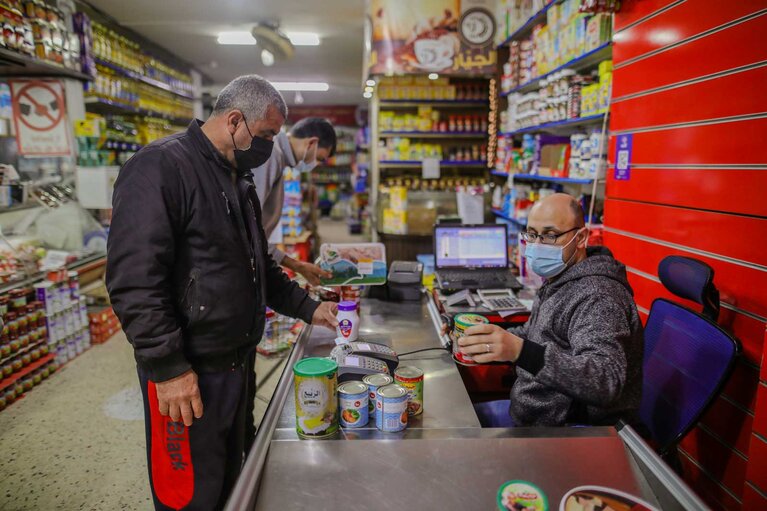Helping families affected by COVID-19 afford varied and nutritious food
“I couldn’t remember the last time we ate fresh fruit and vegetables”
Before COVID-19, Mohammed worked as a repairman at a wedding hall. When the pandemic hit the Gaza Strip, where he lives, precaution measures closed all venues, and he was left without an income. He could no longer provide food and basic living supplies for his wife, three children and two elderly parents. They had to rely on humanitarian assistance.
In December 2020, Mohammed’s father tested positive for COVID-19 and died shortly thereafter. As they were dealing with the illness and loss of a dear family member, the family took upon itself to stay home for two weeks, to protect their community by not spreading the virus further. But this prevented them from seeking help outside.
In January 2021, thanks to funding from the occupied Palestinian territory Humanitarian Fund (OPT HF), they were among 3,600 families in Gaza who received electronic vouchers to mitigate the impact of the pandemic for three months. The project was implemented by the Catholic Relief Services (CRS), the Life and Hope Association and the Palestinian Organization for Development.
CRS and its vendors have protective measures in place so that vouchers can be safely redeemed by families like Mohammed’s. CRS also used text messages, phone calls and flyers to ensure families have accurate and timely information on how to stay safe while accessing project services. Home deliveries were also provided as needed.
“I used the assistance to buy many food items, including cheese, canned items, beans, vegetables and poultry,” Mohammed said.
Gaza does not lack varied and nutritious food, but many families cannot afford enough of it. Across the occupied Palestinian territory, over 217,000 people who were previously considered moderately food insecure became severely food insecure during 2020. Overall, about 2 million Palestinians face food insecurity, and have to count on humanitarian organizations’ support.
“They were the hardest days of my life,” Mohammed recalled of the quarantine period. “I was unable to provide my family with food or hygiene products, and I couldn’t go out to seek help. When I heard from CRS, I was very happy and relieved.”












